Stable Isotope Preparation Lab
About the Lab
The Stable Isotope Preparation Lab at UConn supports interdisciplinary research in archaeology, biology, and geochemistry.
Our research is facilitated through the processing and preparation of various types of samples, from soils to biominerals and organic tissues (e.g., bone collagen, feathers, plants) for isotopic analysis using different samplings and extraction techniques.
The lab has a vibrant community of graduates and welcomes both undergraduate and graduate students, provides training opportunities, and research experiences.
Current Projects
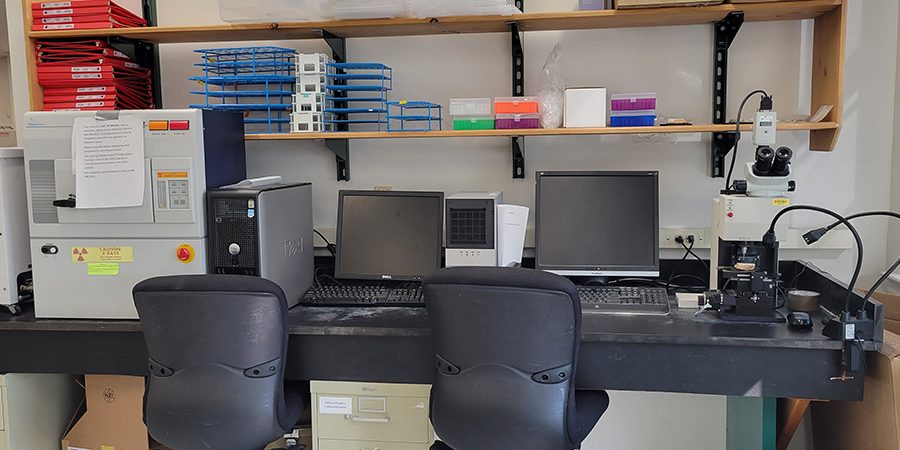 Micromilling (New-Wave) system and XRD (Rigaku)
Micromilling (New-Wave) system and XRD (Rigaku)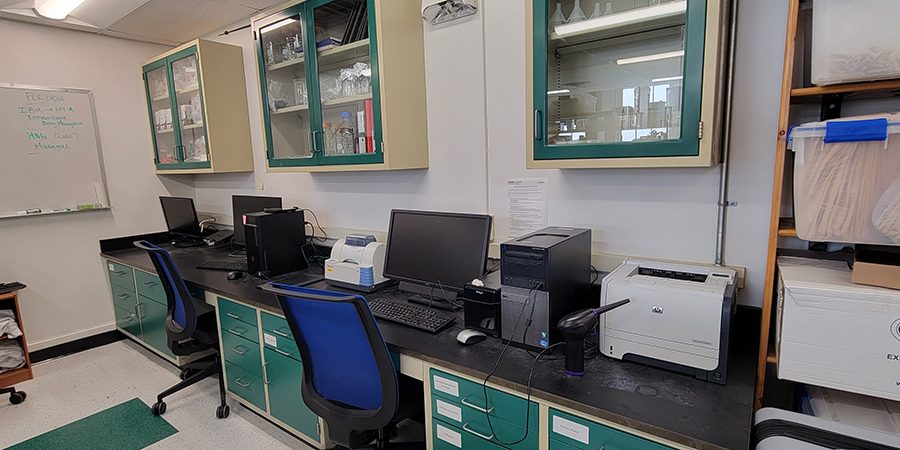 FTIR (Nicolet iS5) and computer station.
FTIR (Nicolet iS5) and computer station.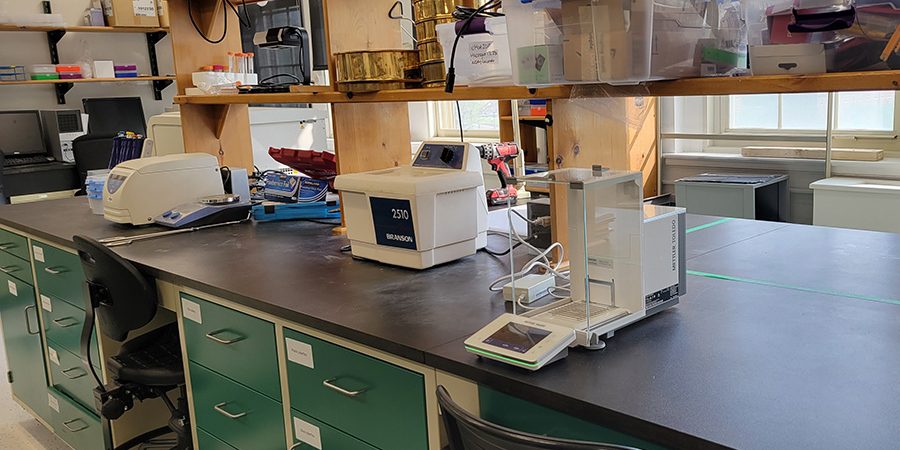 Lab bench – analytical balance (Mettler Toledo), centrifuges, hot plates, shakers.
Lab bench – analytical balance (Mettler Toledo), centrifuges, hot plates, shakers.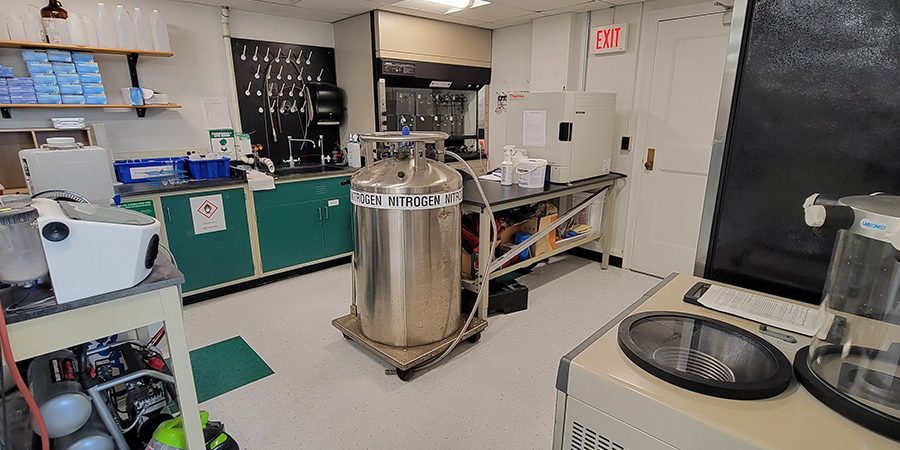 Wet lab – freeze-dryer, freezer, refrigerator, sand blaster, furnace, heat block.
Wet lab – freeze-dryer, freezer, refrigerator, sand blaster, furnace, heat block.
Chronic Smoke Exposure and the Bone Isoscape
Project Lead: Corrin Laposki
Hominin reliance on pyrotechnology and exposure to air pollution has intensified and diversified over time with hitherto unknown health effects. My dissertation project examines the effects of prolonged wood smoke exposure on mammalian biology via a rodent model using a range of biomarkers like inflammatory markers in blood, bone isotope values, and microbiome 16S rRNA sequences. The results of this dissertation work will help illuminate the health implications of indoor air pollution in early urban societies and the potential risks to bone health in the face of increased wildfire smoke exposure brought about by anthropogenic climate change.
The Impact of Tropical Storm Intensities on Coastal Communities in Southern Mozambique During the Holocene
Project Lead: Elena Skosey-Lalonde
My dissertation research project involves using stable isotopes, molluscan biodiversity, and organic geochemical analyses via microbial membrane temperature reconstructions (TEX86) in coastal lake sediment cores, and archaeo-ethnohistorical archives to reconstruct climate. Currently my focus is on using these methods to reconstruct Holocene Indian Ocean Cyclone/Monsoon systems and to interpret how their intensification impacts coastal settlement and land use patterns in coastal sites in Mozambique. This record is contrasted against archaeological and historical records of LSA and Chifumbaze (Iron Age) communities to determine means of settlement, subsistence, coastal resilience in the region.
Last Glacial Local Environments and Human Behavior in the Southern Levant
Project Lead: Chen Zeigen
My dissertation project focuses on the reconstruction of local paleoenvironments and human mobility in the southern Levant during the last glacial cycle. I use stable isotope proxies from tooth enamel carbonates of hunted herbivores and from leaf wax biomarkers, all collected from cave sites located in Israel, with human occupations spanning from 70 to 20 thousand years before present. Leaf wax biomarkers, together with the carbon and oxygen isotopic composition of tooth enamel, record information about hydrology and plant biome in the site’s surroundings, providing a way to trace environmental changes experienced by the site’s occupants. The strontium and oxygen isotopic composition of herbivore teeth provide a way to trace changes in hunting ranges utilized by humans, and thus allow a glimpse into mobility patterns central to hunter-gatherer subsistence strategies.
The Demised and Those Who Thrived: Megafauna Turnover in the Pleistocene - Holocene Transition of Alaska
Project Lead: Audra Darcy
Alaska provides one of the last havens for extinct glacial megafauna, and a present day home for other megafauna species. This serves as a prime location to test the interaction of climate forcing, environment response, and humans on this megafauna turnover. Using an interdisciplinary approach we will study vegetation turnover, quality of plant dietary sources, archaeology, and stable isotope markers to look for physiological and dietary stresses in extinct and extant megafauna species between Last Glacial Maximum and the Holocene.
Our Team
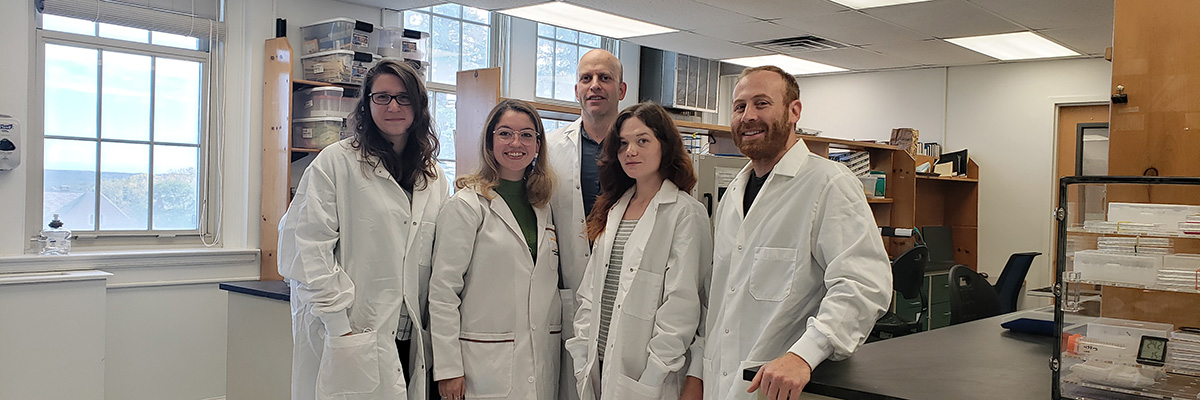
Lab Director
Graduate Students
Past Graduates and Postgraduates
Alex Brittingham
Petra Vaiglova
Contact Us
| E-mail: | gideon.hartman@uconn.edu |
|---|---|
| Address: | Beach Hall, Room 309 354 Mansfield Road Unit 1176 Storrs, CT 06269-1176 |